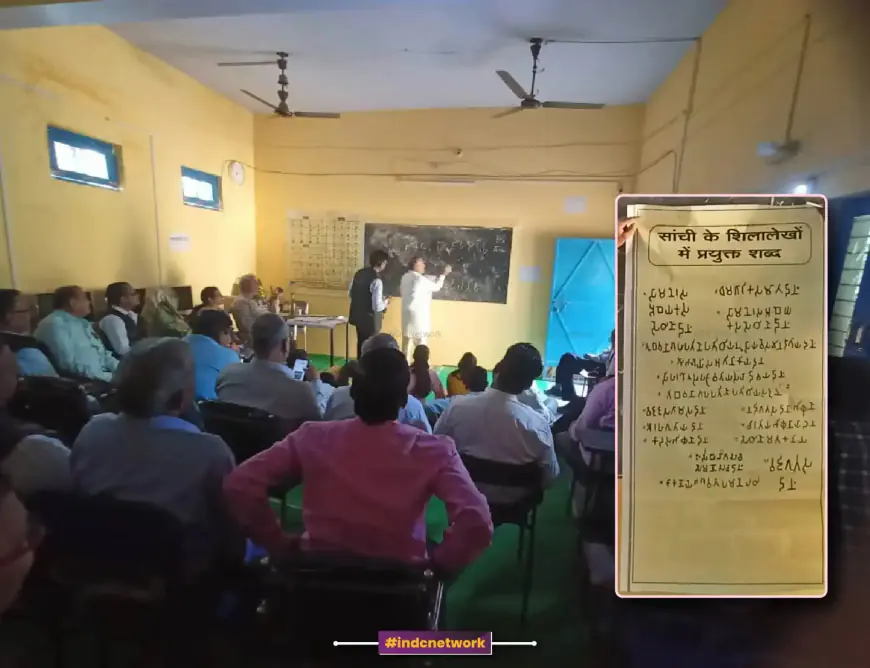In Farrukhabad, G.S. Shakya discussed Emperor Ashoka's Dhamma Lipi and Buddha's sayings.
During a program in Farrukhabad, the nuances of Emperor Ashoka's Dhamma Lipi and the Pali language were highlighted. Dr. G.S. Shakya gave detailed information on the structure of the Pali language, its historical importance and modern methods of learning it. Students and Buddhist followers participated in the program.

INDC Network : Farrukhabad, Uttar Pradesh : Special program organized on the importance of Pali language
Informative session on Dhamma Lipi of Emperor Ashoka
Dr. G.S. Shakya, Managing Director of Emperor Harshvardhan Buddha Vihar, Arail, Prayagraj, organized a special session on the importance of Dhamma Lipi of Emperor Ashoka and the Pali language in the auditorium of Mahavir Inter College today. In the program, Buddhist followers and students were made aware of the nuances of writing and reading the Pali language.
Structure and uniqueness of Pali language
Dr. Shakya told that letters, vowels, consonants and vowels have special importance in Pali language. He explained that the word "prajna" in Pali language is called "paiyaan". The word "sutra" is used in place of the word tra, which is called sutra in Hindi. The words of Lord Buddha are also preserved in the form of "sutra".

Digital medium and practice of Pali language
Referring to the app called Akshar Mava, Dr. Shakya said that learning and reading Pali language is easy even through digital medium. He said that with a little practice, Pali language can be learned easily. The uniqueness of counting and sounds of Pali language was also discussed.
Advertisement - Avail the services of Samrat Studio

Importance of Emperor Ashoka's inscriptions
Dr. Shakya, while shedding light on Emperor Ashoka's inscriptions, said that the heritage was completely preserved in the Pali language. He made a special mention of the inscriptions of Sanchi and the inscriptions of the great emperor preserved in the Allahabad Museum.
Inspiration to followers
Dr. Shakya inspired Buddhist followers to learn and teach the Pali language. He said, "The grandson should be able to read what the grandfather has written." He promised to teach 100 people himself if they gather for the Pali language.

Special guests and participation
in the program were Kalicharan Shakya, Shivkumar Shakya, Ramautar Shakya, Vijay Shakya, Mahavir Singh Shakya, Avdhesh Shakya, Kuldeep Katheria, Shivsharan Shakya, Ramveer Shakya, Vedram Shakya, Devkinanda Shakya, Narendra Shakya, Pravesh Shakya, Aman Kushwaha, Sarvesh Shakya, including several retired officers and students.
Concluding Thoughts
Considering the interest of people towards Pali language and its importance, this program was an inspiring initiative for the followers and students.









